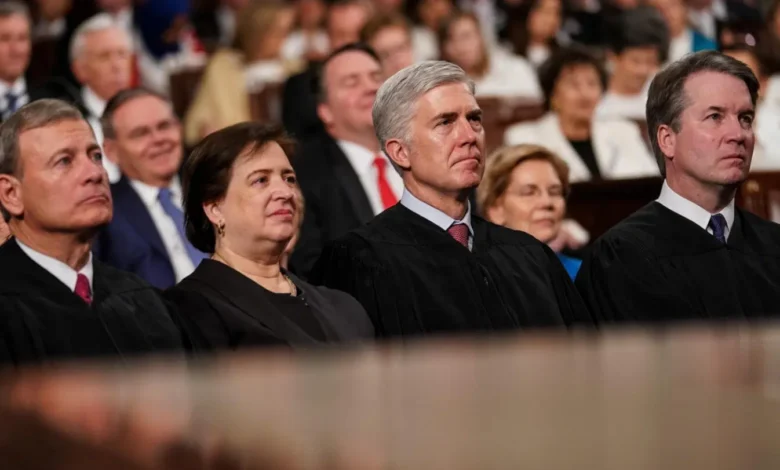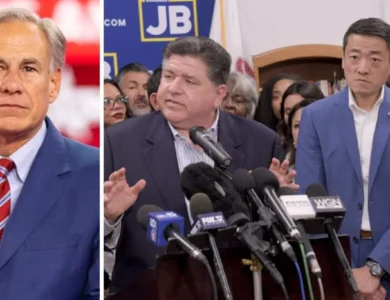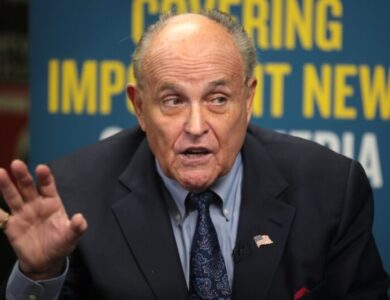Supreme Court Allows Trump To Remove Democratic FTC Member For Now

President Donald Trump has received approval from the U.S. Supreme Court to dismiss Rebecca Slaughter, a Democratic member of the Federal Trade Commission (FTC).
The Trump administration requested an emergency injunction from the Supreme Court last week to halt the lower court’s decisions and expedite Slaughter’s removal. The government has also asked the court to hear the entire case to settle the constitutional issue of whether a president can fire the heads of independent agencies.
The Justice Department said in its filing that the FTC’s powers had grown a lot since 1935, and that the president can now fire its commissioners, giving them a lot of executive power.
“The lower courts have once again ordered the reinstatement of a high-level officer wielding substantial executive authority whom the president has determined should not exercise any executive power, let alone significant rulemaking and enforcement powers,” US Solicitor General D. John Sauer told the Supreme Court.
In March, Trump removed Slaughter and another Democratic FTC commissioner. A federal district court mandated her reinstatement in July. On Tuesday, an appeals court said Trump couldn’t fire Slaughter right now.
“The government has no likelihood of success on appeal given controlling and directly on point Supreme Court precedent,” the court order read, citing the 1935 case, Humphrey’s Executor v. US.
The nation’s highest court has been busy lately.
Supreme Court Justices Neil Gorsuch and Brett Kavanaugh issued warnings this summer to lower court judges, cautioning them against defying precedents set by the high court in a series of cases involving President Donald Trump’s administration.
“Lower court judges may sometimes disagree with this court’s decisions, but they are never free to defy them,” Gorsuch wrote in an opinion last week.
The decision was related to Trump’s cancellation of nearly $800 million in federal research grants. Kavanaugh joined the opinion, which criticized a district court for disregarding an earlier Supreme Court order.
Gorsuch noted that it was “the third time in a matter of weeks this court has had to intercede in a case ‘squarely controlled’ by one of its precedents.” He added, “When this court issues a decision, it constitutes a precedent that commands respect in lower courts.”
The decision allowed the administration to keep the grants frozen, overturning a ruling from U.S. District Judge William Young, who made the baseless claim he had “never seen government racial discrimination like this.”
Other justices have also criticized lower courts.
In March, Justice Samuel Alito said a federal judge had committed an “act of judicial hubris” in a case involving another Trump policy.
The high court has sided with the administration on a number of emergency docket cases this year, including disputes over immigration, spending, and the leadership of independent agencies. In some instances, the justices have ruled in Trump’s favor even when the executive branch had not complied with lower court orders.
Justice Ketanji Brown Jackson, dissenting in the NIH funding case, compared the majority’s approach to “Calvinball jurisprudence,” referring to the comic strip in which rules constantly change. “Calvinball has only one rule: There are no fixed rules,” she wrote. “We seem to have two: that one, and this administration always wins.”
Justice Sonia Sotomayor has also criticized the majority’s handling of Trump cases. In a dissent earlier this summer involving deportations, she wrote that the court was “rewarding lawlessness.” “This is not the first time the court closes its eyes to noncompliance, nor, I fear, will it be the last,” she said.
At issue is how much weight lower courts should give to the Supreme Court’s emergency orders, which are often unsigned and issued without detailed reasoning.
While the justices have emphasized that such rulings are not conclusive on the merits, recent opinions have said they should still guide short-term outcomes in similar cases.
The court also issued a major ruling this year restricting the power of district judges to impose nationwide injunctions, which had been used in both Republican and Democratic administrations to block policies.
The decision came in a case involving Trump’s order to end birthright citizenship.





